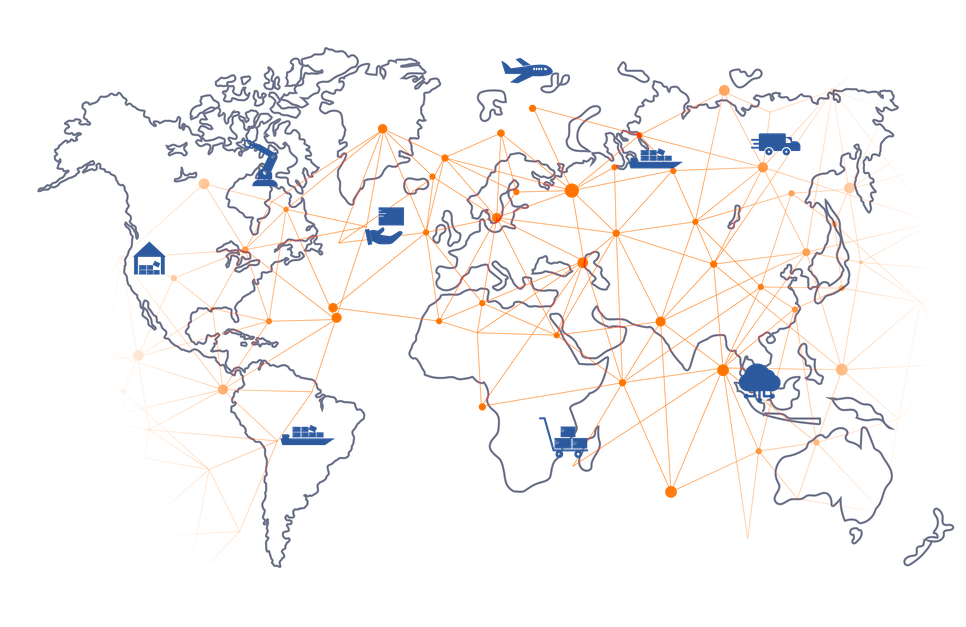Secure Your Software Supply Chain—Automate Protection, Reduce Risk
Software supply chain attacks are surging, particularly as organizations rely on open-source and third-party components. RunSafe Security secures your software supply chain through automated SBOM generation, vulnerability identifiation, and hardening of external dependencies.

A Software Supply Chain Security Tool for More Visibility and Runtime Protection
Software supply chain attacks have surged by over 700% in recent years, with incidents like SolarWinds, Log4j, and XZ Utils demonstrating how a single compromised component can cascade across entire ecosystems. Most organizations control only a fraction of their software, relying heavily on open-source and third-party components that create expansive attack surfaces.
RunSafe Security transforms software supply chain security by automating SBOM generation, vulnerability identification, and code hardening. You get visibility into your code and runtime mitigations—all integrated into your existing development workflows.
RunSafe Security Was Honored as Best Supply Chain Security Solution Finalist in the 2025 SC Awards
Prevent Supply Chain Attacks
Before They Spread
RunSafe provides SBOM generation and vulnerability identification so you can get ahead of risk while our code protection shrinks your attack surface.
Deploy in Less
than a Day
RunSafe integrates with existing CI/CD pipelines and supports a range of development environments.

Build-Time SBOM Generation for Complete Supply Chain Visibility
Capture every component during compilation, not after the fact. Unlike traditional approaches that analyze final binaries, RunSafe generates comprehensive Software Bills of Materials (SBOMs) during the build process. This build-time approach captures every component, library, and dependency—including second-order dependencies that binary analysis often misses.
Our authoritative SBOM generation enables organizations to:
- Rapidly identify and respond to vulnerabilities, like Log4j-type incidents
- Maintain complete visibility into software composition
- Meet regulatory requirements (FDA, EU Cyber Resilience Act, Executive Order 14028)
- Communicate transparently with stakeholders and auditors


Automated Supply Chain Protection Against Memory-Based Exploits
Eliminate vulnerabilities across your software supply chain without code rewrites. RunSafe’s patented memory relocation technology hardens your software at the binary level during the build process, making it resilient to memory corruption exploits.
- Neutralizes the most critical vulnerabilities in C and C++ codebases, including those from third-party and legacy components
- Defends against both known and zero-day memory-based attacks that commonly target shared dependencies
- Maintains software performance without introducing overhead
- Integrates easily into existing CI/CD pipelines and toolchains
Latest Resources
Navigating Third-Party Software Risk: Best Practices for 2026
Most of the code running in your product probably isn't code you wrote. Open source libraries, vendor SDKs, and firmware components all become part of your attack surface the moment they're compiled into your build. Third-party software risk is the potential for...
The Worst Vulnerabilities of 2025: How Pre-Auth RCE Broke the Perimeter
Across industries, the year’s most damaging vulnerabilities shared the same defining trait: unauthenticated remote code execution (pre-auth RCE) on internet-facing systems. VPNs, firewalls, web frameworks, and even core ERP platforms all fell victim to flaws that...
3 SBOM Generation Methods: Binary vs Build-Time vs Source Code
Your SBOM is only as useful as it is accurate, and the method you use for Software Bill of Materials (SBOM) generation determines the level of accuracy you will receive. SBOM generation method determines whether an SBOM captures what developers declared, what scanners...
Ready to Get Started?
RunSafe secures the software supply chain by generating comprehensive SBOMs, identifying vulnerabilities, automating remediation, and ensuring end-to-end protection for embedded systems from third-party and open-source risks.


